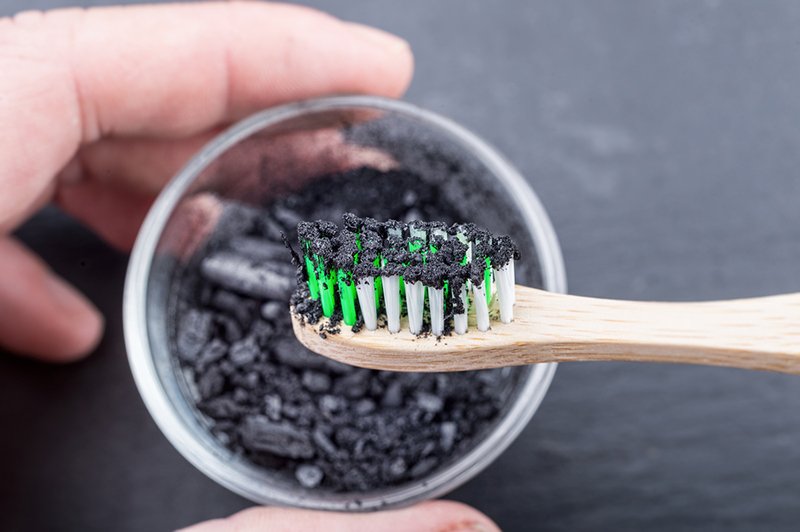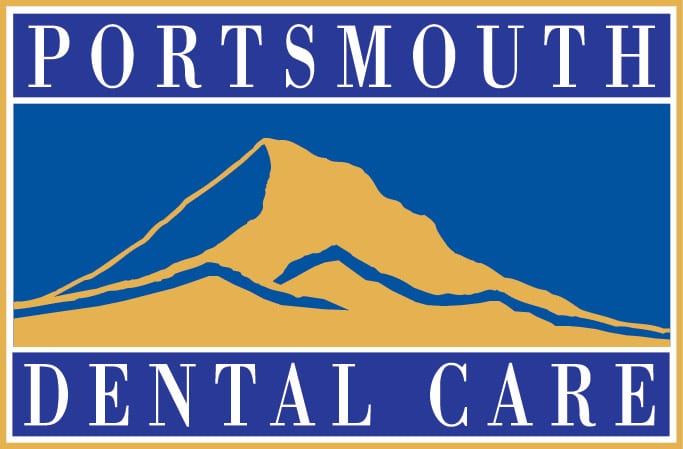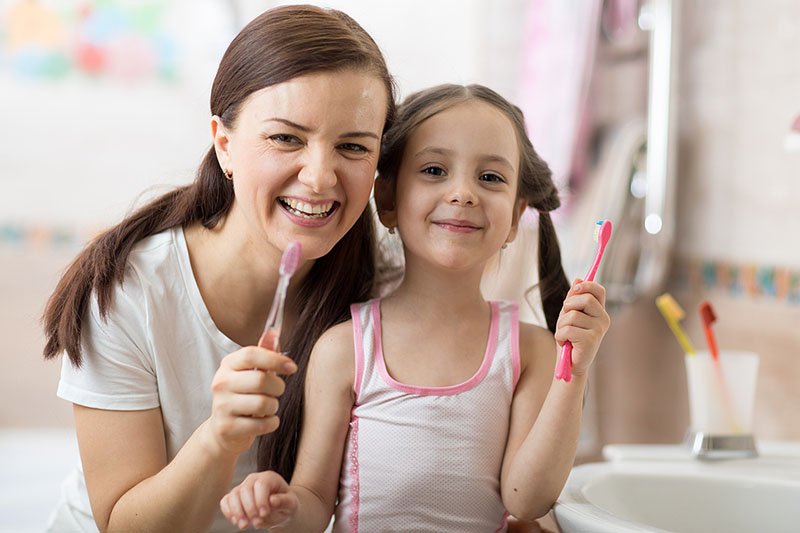
There’s been a lot of hype around the Internet, social media and even on store shelves about using activated charcoal for its teeth whitening affects. Like any trendy new dental hygiene tip, we decided to take a closer look at the charcoal teeth whitening trend, and here is what we want you to know.
We’ve seen posts and articles about using raw activated charcoal or toothpastes with charcoal mixed in to clean your teeth with the expectation that it has natural teeth whitening properties. The logic comes from the fact that activated charcoal is used in emergency rooms to absorb toxins and that the charcoal will do the same thing to your teeth. Some sources also say that the charcoal will remove bacteria and freshen your breath by restoring pH balance.
While it is possible that charcoal may remove surface stains and have other benefits, as dental professionals, we also worry that it may be too abrasive (i.e. rough) for enamel that makes up the outside layer of your teeth and protects them from decay or sensitivity. Regular toothpastes, especially whitening toothpastes, contain abrasives that are known to be safe on teeth. It’s possible that charcoal is dangerously rough on teeth, but we don’t know yet.
The American Dental Association conducted a review of all the available research on the use of charcoal in oral hygiene and came to the conclusion that there isn’t enough scientific evidence supporting or refuting claims that many charcoal products make. They called for more studies to be done in the future to get to the bottom of charcoal’s affect on teeth and advised that dentists tell their patients to be cautious about using charcoal on their teeth.
When it comes trendy tooth care, whether charcoal or any other trend you see online or hear about from a friend, use this analogy: Think of your mouth like the engine of your car. Imagine coming around saying they discovered you can use a cheap household product like rubbing alcohol to fuel your car. The alcohol will make your car run really smoothly for the first few hundred miles, then it might start wearing away at the parts inside your engine so it doesn’t run right anymore. Would you want to fuel up with the alcohol, or stick to good old gasoline?
The truth is, we’re just not sure if charcoal is good for your teeth or bad. Since there’s no proof that it’s safe, we advise sticking to tried and true dental hygiene tools: your toothbrush, floss, fluoride toothpaste and if needed, occasional professional teeth whitening at the dentist.
Appointments Before & After Work or School & on Saturdays & Sundays!
Request Online or Call Today!
Related Posts
Counterproductive Brushing Habits & Fixes
If you brush your teeth at least twice a day, you’re doing great. Regular brushing is the key to preventing tooth pain & expensive procedures.
Solutions for Slowing Sensitivity in Teeth
As our teeth are exposed to more & more foods that wear away enamel, our teeth can become sensitive to things like hot & cold food & drink.
Teaching Your Child Good Dental Habits
Good dental habits like brushing your teeth are important for your oral & overall health, but to kids, they can feel like a chore. Even though baby teeth will fall out eventually, it’s important to keep them healthy because they are guides & space holders for permanent teeth. Here are some tips for teaching your kids good dental hygiene habits to solidify their oral health for a lifetime.



